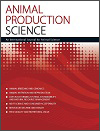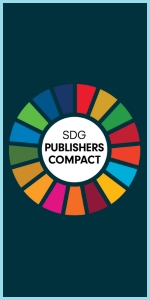Animal Production Science
Volume 64
Number 13 2024
This study examined the effectiveness of probiotics derived from fermented camel and mare’s milk products (shubat and koumiss) in Kazakhstan for improving broiler chicken production. Several probiotic strains had a significant effect on body and carcass weights, and average daily gain and feed conversion ratio were also improved. Considerable presence of these traditional fermented dairy products in Kazakhstan offers a promising opportunity for the creation of locally derived probiotics specifically designed for poultry use. This potentially enables the adoption of more environmentally friendly and specialised broiler-farming practices in the area.
Global demand for protein in the form of red meat is growing, especially in Southeast Asia, with income and population growth driving an increase in beef consumption. To meet this demand advances in smallholder large-ruminant production and profitability have been achieved. However, to achieve regional food security ongoing challenges and opportunities need to be addressed.
This article belongs to the Collection Sustainable Animal Agriculture for Developing Countries 2023.
The management of heat stress is an increasing topic of interest in pork production, especially during summer. This study approaches nutritional management to mitigate the negative impacts of environmental temperature on pork production and meat quality by supplementing selenium and vitamin E in pigs’ diets, along with organic acid in drinking water. The results of this study suggest that during cool seasons, supplementing antioxidants and organic acids in grower-finisher’s diets may be unnecessary, reducing the feed cost.
The safety and nutritional quality of milk for human consumption depends on the quality of the feed sources consumed by dairy cattle. Our study has shown that mycotoxins, harmful toxins, detected in some feed sources (e.g. forage silages, hay and concentrates) could be transferred to milk. Strategies for efficient management of feed sources should be developed and the transferability of mycotoxins to milk should be controlled to ensure that the food supply chain is safe and free from harmful toxins.
Understanding input efficiency in specialised milk farming is crucial for enhancing sustainability and productivity in the European Union (EU) dairy sector. This study addressed the problem of inefficient resource utilisation in EU milk farming, discovering that countries such as Ireland and the Netherlands achieve full efficiency, whereas others have significant potential for improvement. The findings indicated that improving resource efficiency can lead to significant cost savings, environmental benefits, and increased competitiveness within the dairy industry.
The role of animal products in providing balanced diets to minimise nutrient deficiencies in the peoples of Laos, Vanuatu and Samoa is reviewed in this perspective.
This article belongs to the Collection Sustainable Animal Agriculture for Developing Countries 2023.
The conflicting results regarding the impact of equilibration time on sperm quality warrant further research to improve the post-thaw sperm quality of ram semen. The findings of the present study indicated that slow cooling and equilibration time of 4 h better-preserved sperm quality. The optimisation of sperm-freezing protocol will be beneficial for the widespread use of artificial insemination in sheep.
Supplementing Bali cattle rations in leucaena-based smallholdings with locally available cassava as an energy source, provides an opportunity to increase cattle live weight gain, extend the utilisation of leucaena and increase farmer profitability. Weight gain and profitability were maximised up to 45% cassava, but higher levels reduced feed intake, average daily gain and income over feed costs. Feeding cassava meal to leucaena-based diets is an important strategy to preserve leucaena as well as to increase profitability and meat production nationally.





